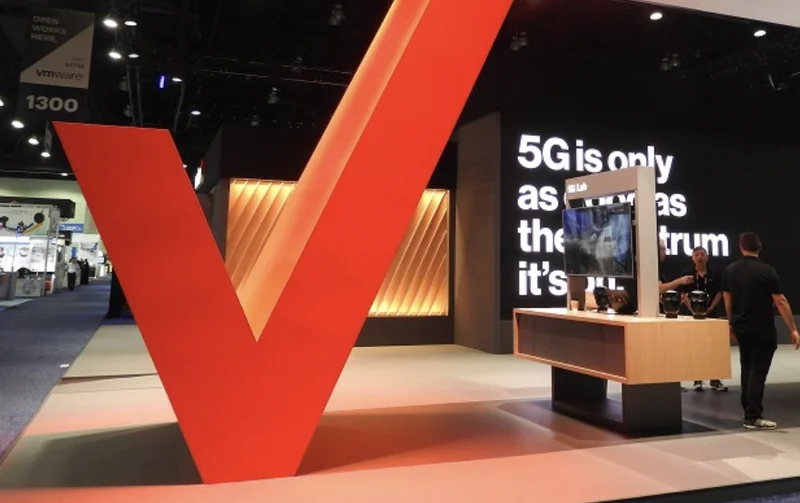Verizon's Layoffs: A Necessary Jolt or a Sign of Deeper Trouble?
Okay, let's dive right into this Verizon news, shall we? Fifteen thousand jobs. Gone. Or, well, shifting as some stores become franchises. Headlines are screaming "layoffs," "economic uncertainty," and generally painting a gloomy picture. But hold on a second. As someone who's spent their life peering into the future of technology, I think we need to look beyond the surface-level fear and ask: Is this a sign of decline, or a necessary, albeit painful, step towards something better?
Let's be honest, Verizon hasn’t exactly been setting the world on fire lately. The reports are clear. Subscriber numbers are down. Competition from AT&T and T-Mobile is fierce. Even Verizon's chairman, Mark Bertolini, admitted they've lost serious market share, and their network isn't as differentiated as it used to be. Ouch. New CEO Daniel Schulman, fresh from PayPal, is walking into a pressure cooker. His plan? Cost-cutting. Streamlining. Making Verizon "leaner and scrappier." The words themselves don't exactly inspire confidence, do they? It sounds like a corporate buzzword bingo card. But maybe, just maybe, there's more to it.
The Inflection Point
Schulman himself called this a "critical inflection point." He's not wrong. Verizon, like many established giants, is facing a rapidly changing landscape. The old models aren’t working. Relying on price increases without subscriber growth? As Schulman himself said, "not a sustainable strategy." It's like trying to sell horse-drawn carriages in the age of the automobile. You can polish them all you want, but the world has moved on. So, what's the automobile in this scenario? What new technology or approach is Verizon trying to build?
The answer, I suspect, lies in the future of connectivity itself. We're not just talking about faster speeds and wider coverage. We're talking about a world where connectivity is seamless, intelligent, and woven into the very fabric of our lives. Think smart cities, autonomous vehicles, augmented reality experiences, and the metaverse. All of this requires a network that's not just powerful, but also incredibly agile and adaptable. The kind of agility that a bloated, legacy-laden corporation often struggles to achieve.
So, maybe these layoffs aren't just about cutting costs. Maybe they're about shedding the weight that's holding Verizon back from truly innovating. Maybe it's about freeing up resources to invest in the technologies that will define the next generation of connectivity. The sources say the company will target non-union management ranks, with Schulman stating that Verizon needs to be aggressive in its changes as it considers "fundamentally restructuring our expense base." Verizon Jobs Cut Biggest in Company History—Report
Now, I know what you're thinking: "Easy for you to say, Aris. You're not the one losing your job." And you're absolutely right. There's no sugarcoating the human cost of these decisions. Fifteen thousand people are facing uncertainty, and that's a tragedy. But I also believe that sometimes, painful choices are necessary to create a better future for everyone.

It reminds me of the early days of the internet. Countless companies went bust, and thousands of people lost their jobs. But from the ashes of those failures rose the giants that shape our world today. Sometimes, creative destruction is the only way forward. The question is, what will Verizon create from this destruction? Will they simply hunker down and try to weather the storm, or will they seize this opportunity to reinvent themselves?
The good news is that Verizon is not alone. As the article "As Verizon and other big orgs announce layoffs, is it spooking your employees?" notes, companies like Condé Nast and Amazon have also announced layoffs recently. This shows that the entire industry is in flux, and that companies are trying to adapt to the changing landscape. Annie Rosencrans, people and culture director at HRM platform HiBob, suggests that HR leaders should focus on transparency and communication during this time of uncertainty. This is crucial to maintain employee morale and trust.
Rebuilding Trust
The key, as always, is trust. Can Verizon rebuild trust with its employees, its customers, and its investors? Can they convince us that this isn't just another round of corporate downsizing, but a genuine attempt to build something new and better? This is the kind of breakthrough that reminds me why I got into this field in the first place.
I’m seeing comments online about "rolling layoffs" creating anxiety and insecurity. It's a valid concern. Layoffs are on people's minds, even more so than during the pandemic's start, according to Glassdoor data. But it also shows that people are aware and engaged. They're not passively accepting the status quo. That's a good thing. It means they care about the future of their companies and their industries.
So, What's the Real Opportunity?
Verizon has a chance to lead the way, to show the world that it's possible to navigate this inflection point with courage, vision, and a commitment to creating a better future for all. It won't be easy, but the potential rewards are enormous. The company needs to focus on clarity, not promises and guarantees, as Rosencrans suggests. They need to trust their employees and communicate openly and honestly.
It's like the shift from vinyl records to digital music. There was a lot of resistance at first, but eventually, everyone realized that digital music was more convenient, more accessible, and ultimately, more democratizing. The same is true of the changes happening in the telecom industry today. It may be painful in the short term, but it will ultimately lead to a more connected, more innovative, and more exciting future.
